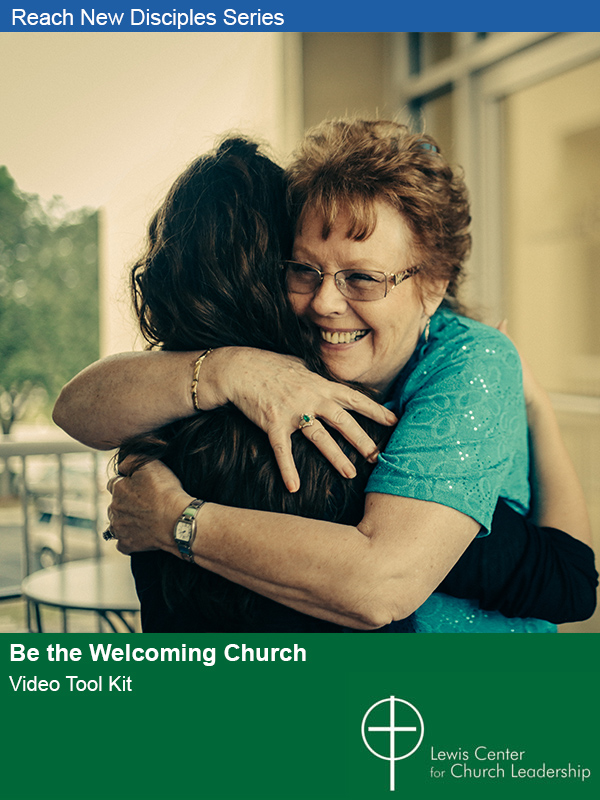Preaching in a different church almost every Sunday, Nancy Taylor learned firsthand how often visitors go unnoticed even in churches that see themselves as “friendly.” Christian hospitality, she writes, requires that we mind the doors of our churches not as gatekeepers but as disciples charged with oiling the hinges so that they swing open easily.
In a former position, I preached at a different church almost every Sunday. These were small to mid-sized churches in the villages, towns, and cities of Massachusetts. I can’t tell you how many times, upon entering a church, my presence as a visitor was barely acknowledged. Similarly, during the fellowship hour following worship, I was often left alone to nurse a cup of coffee while congregants cheerfully chatted among themselves.
“We are a friendly church.”
When I later met with leaders of those same congregations and asked them to tell me about their church, nearly all of them said, “We are a friendly church.” What I came to understand is that there were friendly to each other but far less inclined — or equipped — to provide a wide, warm welcome to the outsider, the stranger, the newcomer, the alien.
In my preaching travels I can tell you of arriving Sunday mornings and trying one church door (tugging futilely at its great handle), then another before I finally found the one that was unlocked. Once inside, I routinely observed ushers conversing with each other while ignoring visitors.
Entering a church for the first time requires courage.
Here’s the thing — for most people, the mere act of entering a church for the first time requires quantities of courage and resolve. They are motivated to muster courage for a reason: they are grieving the death of a loved one or reeling from a difficult divorce or a painful diagnosis, or they are new to town and seeking a place to connect. Which is to say, such newcomers rarely appear at our church doors on a lark. Rather, they are on a mission; they arrive with heartache, fear, grief, loneliness. Those who summon the courage to show up at our doors — whether the straight, the differently abled, people of color, or queer people — have no idea what they will find. True, most will have searched our websites, seeking clues about what transpires behind those massive doors, but they don’t know if they will be greeted or snubbed, noticed or ignored. One bad experience may be the one they remember forever. It may be the only chance they give us.
Most churches work well for those who are insiders, who already know the right door to open, who have a pew mate to sit with, who know everyone’s name and the roles they play in the life of the church, who nod knowingly when it is announced that the after-church program will take place in Edward’s Hall. As a first-time visitor, I don’t know how to get to Edward’s Hall, whether it’s accessible, or whether I am wanted. When I get there, I wonder, will anyone say hello, show me the ropes, or sit by me? Most introverts will tell you that there is nothing as intimidating and discouraging as entering a church’s fellowship hour. So, they don’t.
A little kindness
Those nearly four years of preaching at a different church each Sunday provided a unique schooling in visiting churches as a stranger. It wasn’t pretty. All a newcomer really hopes for is a little kindness, a smile, some human warmth. If they get that, they might stay on for the really good stuff like healing, reconciliation, forgiveness, and participation in the rhythms of the sacraments and holy days, of meaning-making and proximity to the divine. If they settle among us, they might learn what it is to handle the mysteries of good and evil, time and eternity, life and death, spirit and flesh, immanence and transcendence. However, in too many cases visitors to our churches don’t get even the proverbial time of day.
Counterintuitive practice
Humans are hardwired to gravitate to friend before stranger, to similar before different. We don’t generally shout “Thanks be to God!” to complete strangers. We are not inclined to let strangers into our houses. This work of Christian hospitality, this minding the door — not as gatekeepers but as disciples charged with oiling the hinges so that these old doors swing easily — is profoundly counterintuitive. It needs practice, an overcoming of innate instincts. It requires of us that we embrace and embody an expansive gospel and a roomy, generous Christianity, a lived theology that asks us to skootch over to welcome the other, the stranger.
Thus, after those years of itinerant preaching, when I arrived at Old South Church in Boston to serve as its senior minister, I had Christian hospitality on my mind and heart. As it happened, so did Old South Church. A batch of lay leaders and some retired clergy were already bent on turning the church’s culture from inward looking to outward facing. We used the 66th chapter of Benedict’s Rule to guide us. We imagined shouting: Deo gratias! Thanks be to God! to every stranger and visitor. It was a sea change that required a lot of work: visioning, planning, recruiting, retraining, coaching, and retooling. Clergy, laity, staff, and volunteers all had to think and act differently.
Today, greeters are positioned outside the building. They smile, point the way to the open door, ready to welcome, answer questions, and shepherd the transition, the crossing of the threshold from outside to inside, from stranger to acquaintance. Inside, clergy and ushers, strategically located, welcome and guide visitors. A solitary newcomer is asked, “May I seat you next to someone who will show you the ropes?” Parents with young children are escorted through the bustling narthex into the elevator and on the 3rd floor are introduced to our Director of Children and Family Ministries who takes it from there. Similarly, we assign greeters to our coffee hour. Our members (not just the ushers) are encouraged to look out for newcomers, befriend them, show them around, and introduce them.
One Easter Sunday, a visitor turned to her friend and said with astonishment, “They let anyone in here!” That’s the idea.
This article is adapted from “Minding the Church’s Doors,” which originally appeared in the Fall 2021 edition of Yale Divinity School’s Reflections. Used by permission.
Related Resources
- Be The Welcoming Church Video Tool Kit
- 3 Principles of Radical Hospitality by Yvonne Gentile and Debi Nixon
- Welcoming Is the Top Factor in Church Choice







